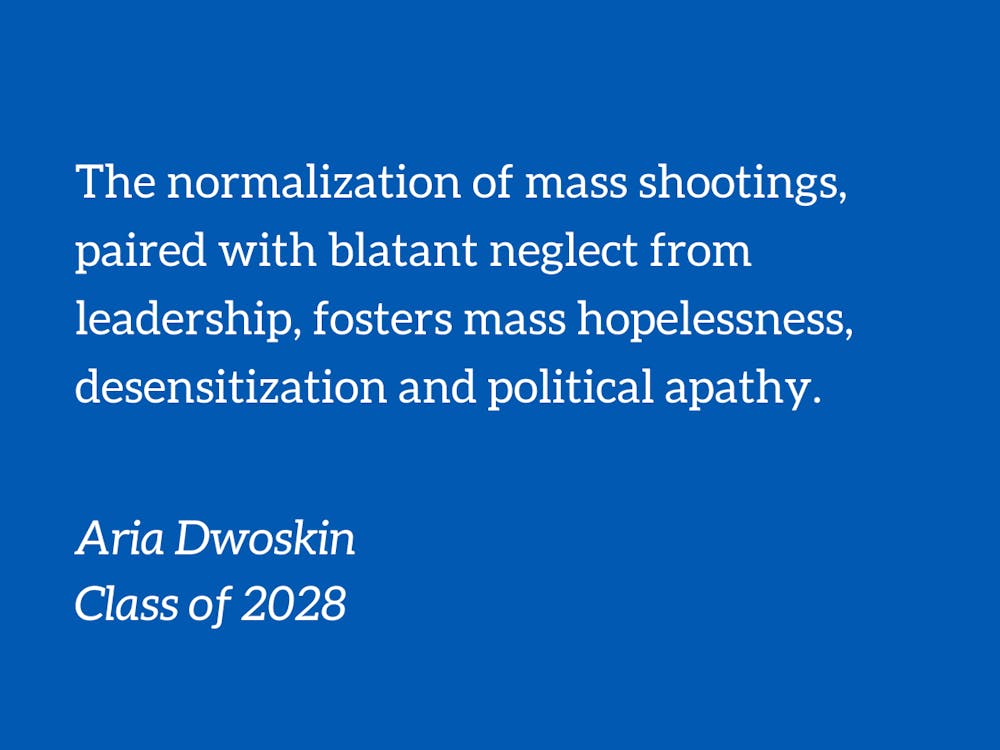On March 20, the North Carolina Senate passed Senate Bill 50 “Freedom to Carry NC” in a 26-18 vote. This bill, which has now advanced to the House, is an act to “protect a person’s right to carry a concealed handgun without a permit.” Under this bill, any North Carolina citizen over the age of 18 would be allowed to carry handguns in a concealed manner without obtaining a permit. It is important to note that this applies specifically to concealed handguns, meaning the individual is able to hide the firearm from public view.
This bill represents a significant shift in North Carolina’s current gun laws. As of now, only people over the age of 21 can carry a concealed handgun, and they must first obtain a permit. Securing a permit requires applicants to visit their local sheriff’s office, complete eight hours of safety and training courses and pass a background check.
Senate Bill 50 eliminates these requirements entirely. The minimum age would be reduced by three years, and there would no longer be a mandated training course or background check. To many, this is an alarming prospect. However, the Republican senators sponsoring this bill — Danny Earl Britt, Warren Daniel and Eddie Settle — argue that they are defending their constituents constitutional rights by ensuring “that law-abiding citizens should be able to exercise their Second Amendment rights without getting permission from the government.” These senators aim to align North Carolina with the 29 states that allow permitless concealed carry, commonly referred to as “constitutional carry.” Proponents of this measure claim that unrestricted access to firearms ensures personal protection, deterring and more quickly stopping mass shootings.
This is not the case. While two states — Ohio and Indiana — saw fewer shootings following the implementation of permitless carry, and two saw no statistical change, The Trace found that, out of the 20 states that passed permitless carry laws between 2015 and 2022, 16 saw an increase in gun-related deaths. More specifically, within three years of enacting permitless carry, the average number of monthly shooting fatalities rose in Missouri by 28.7%. Similarly, Kansas reported a 24.9% increase, and West Virginia experienced a drastic 40.2% spike in shooting fatalities.
The data deeply undermines any possible case for supporting a constitutional carry. Yet the North Carolina Senate just championed this exact law.
In 2023, North Carolina had 33 mass shootings, a significant increase from previous years. In 2024, North Carolina experienced 15 mass shootings. So far in 2025, North Carolina has had one recorded mass shooting. These statistics underscore the ongoing issue of gun violence in our state. Yet Republican legislators continue to advocate for further deregulation. Executive director of North Carolinians Against Gun Violence, Becky Ceartas warned, “Make no mistake, if Senate Bill 50 passes, the research is clear: it will be paid for in North Carolinian lives.” Ceartas’ statement is not speculative; the data overwhelmingly points to this devastating truth.
With Republicans controlling the North Carolina House, Senate Bill 50 is likely to pass. There is hope that, if this is the case, North Carolina will align with the two states that saw fewer mass shootings, but sadly the odds are against it.
After reading this news, I felt a growing sense of hopelessness, anxiety and fear. Fear not only for the gun violence that plagues our country, but also for the state of our political landscape. I am from Michigan, a state that endured two major school shootings in recent years. I was a sophomore in high school when, just 45 minutes away, Ethan Crumbley opened fire on Oxford High School, killing four students. A year later, when I was a junior, a shooting erupted at Michigan State University, where many of my friends attended, and claimed the lives of three students.
For me, gun violence has never felt like a distant issue. It has long been in my backyard, with my home-state experiencing its horrors firsthand. I refuse to live under the illusion that the solution is to increase easy-access to firearms. However, living in North Carolina, it seems that my state legislators do not share this perspective. Despite rising gun violence — 2025 has already seen 76 mass shootings this year — lawmakers continue to push legislation that prioritizes deregulation over public safety. And the people can feel this dissonance.
After the 2018 Parkland shooting, which devastatingly took the lives of 17 students, gun safety activists across the country mobilized to urge leaders to prioritize common-sense gun legislation. Yet seven years later, Republican leaders are still not listening. As a result, gun violence is increasingly perceived as an unsolvable crisis. The normalization of mass shootings, paired with blatant neglect from leadership, fosters mass hopelessness, desensitization and political apathy.
But gun violence is not an inevitability. Thoughtful policy changes could significantly reduce shooting fatalities in a relatively short period. We must resist the urge to accept gun violence as an unavoidable, inherent aspect of American life. With each passing tragedy, we risk becoming numb to the devastation and complacent as lawmakers enact policies that endanger our lives. We must not fall into a place of political hopelessness, and instead continue to champion policies that prioritize our safety.
North Carolina is at a critical moment, and I only hope that its leaders choose the path that prioritizes lives over politics.
Aria Dwoskin is a Trinity first-year. Her pieces typically run on alternate Sundays.
Get The Chronicle straight to your inbox
Sign up for our weekly newsletter. Cancel at any time.

